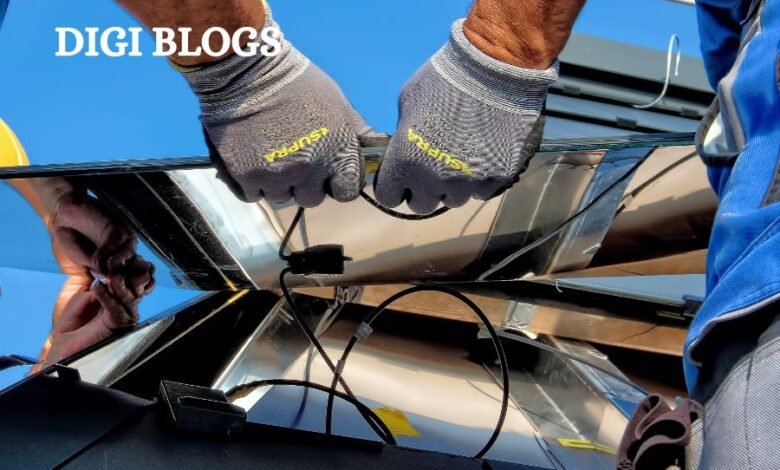Why Did SolSource Go Out of Business?

SolSource, a company known for its innovative solar-powered cooking solutions, made headlines when it appeared on the popular TV show “Shark Tank.” Despite initial success and a promising market niche, SolSource eventually went out of business. This article delves into the reasons behind this unexpected turn of events, exploring aspects such as the company’s net worth, its journey during and after “Shark Tank,” and the challenges it faced.
SolSource: An Overview
Before delving into the reasons for SolSource’s closure, it’s essential to understand what the company was all about. SolSource specializes in creating solar cookers that harness the power of the sun to cook food, offering an eco-friendly alternative to traditional cooking methods. This innovative approach garnered attention for its potential in sustainable cooking solutions.
If the file has been modified from its original state, some details may not fully reflect the Modified file.
| Camera model | HTC6545LVW |
|---|---|
| Camera manufacturer | HTC |
| F-number | f/1.8 |
| Lens focal length | 4.58 mm |
| Date and time of data generation | 14:05, 22 April 2017 |
| ISO speed rating | 100 |
| Exposure time | 1/5,053 sec (0.00019790223629527) |
| Longitude | 122° 16′ 58.54″ W |
| Altitude | 40 meters above sea level |
| Latitude | 38° 18′ 7.25″ N |
| File change date and time | 16:52, 26 May 2017 |
| Width | 2,850 px |
| Y and C positioning | Centered |
| Height | 2,666 px |
| Vertical resolution | 72 dpi |
| Software used | |
| Horizontal resolution | 72 dpi |
| Color space | sRGB |
| Date and time of digitizing | 14:05, 22 April 2017 |
| APEX aperture | 1.69 |
| Light source | Unknown |
| Exposure mode | Auto exposure |
| DateTimeDigitized subseconds | 366586 |
| Focal length in 35 mm film | 26 mm |
| Custom image processing | Normal process |
| Scene capture type | Standard |
| Scene type | A directly photographed image |
| DateTimeOriginal subseconds | 089 |
| Saturation | Normal |
| Exposure Program | Not defined |
| Sharpness | Hard |
| White balance | Auto white balance |
| DateTime subseconds | 366586 |
| Shutter speed | 12.302 |
| Metering mode | Center weighted average |
| Meaning of each component |
|
| Scene control | None |
| Flash | Flash did not fire, compulsory flash suppression |
| Exif version | 2.2 |
| Image compression mode | 4 |
| Contrast | Normal |
| Exposure bias | 0 |
| APEX brightness | 0 |
| Supported Flashpix version | 1 |
| Sensing method | One-chip color area sensor |
| GPS date | 22 April 2017 |
| GPS time (atomic clock) | 21:04 |
SolSource on Shark Tank
One of the critical moments in SolSource’s journey was its appearance on “Shark Tank.” This platform gave the company significant exposure and an opportunity to secure investment from some of the leading entrepreneurs in the industry. The episode featuring SolSource highlighted the unique value proposition of their product and the potential market demand for eco-friendly cooking solutions.
The Impact of Shark Tank Appearance
Appearing on “Shark Tank” often gives companies a substantial boost in terms of visibility and credibility. For SolSource, this was a chance to showcase their innovation to a broader audience and potentially secure the funding needed for expansion. The response from the “sharks” and the audience provided valuable insights into the market’s readiness for solar cooking technology.
SolSource After Shark Tank
Post “Shark Tank,” SolSource experienced a mix of successes and challenges. Initially, there was a surge in interest and sales, indicating a positive market response. However, sustaining this momentum proved to be difficult for SolSource.
Challenges in Scaling and Market Adoption
Despite the initial interest, SolSource faced challenges in scaling its operations to meet the growing demand. Additionally, widespread market adoption of solar cooking technology was slower than anticipated. Factors such as consumer habits, initial product cost, and the practicality of using solar cookers in various geographic locations played a role in this.
The Decline of SolSource: Contributing Factors
Several factors contributed to the decline of SolSource, ultimately leading to its closure.
Economic Viability and SolSource’s Net Worth
Understanding SolSource’s financial health is crucial in analyzing its closure. While the company had potential, translating this into long-term profitability was a challenge. The cost of manufacturing and distributing the solar cookers, coupled with the price point needed to make the business economically viable, contributed to financial difficulties.
Market Niche and Consumer Preferences
The market for solar cooking is niche, catering to a segment of environmentally conscious consumers. However, breaking into the mainstream market required more than just an eco-friendly product. It needed to align with consumer preferences, convenience, and affordability.
Technological and Operational Challenges
Operational hurdles, such as supply chain management, manufacturing efficiency, and quality control, can significantly impact a company’s success. Technological advancements in the solar industry also meant that SolSource had to innovate continually to stay relevant.
Conclusion: Lessons from SolSource’s Journey
The story of SolSource offers valuable lessons for startups and entrepreneurs. It highlights the importance of not only having a groundbreaking product but also ensuring economic viability, market fit, and operational excellence. SolSource’s journey from a promising startup to its eventual closure is a reminder of the volatile nature of the business world and the ever-changing landscape of consumer preferences and market dynamics.
For More Info Visit Digi Blogs




